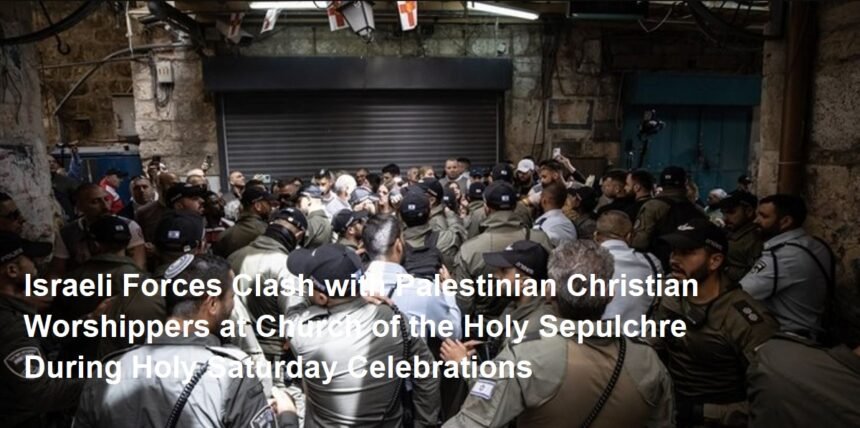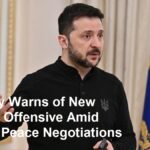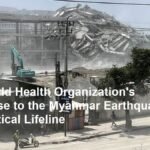In a deeply contentious incident that has drawn international condemnation, Israeli military personnel reportedly stormed the Church of the Holy Sepulchre in Jerusalem on Holy Saturday, forcibly evacuating Palestinian Christian worshippers and pilgrims during one of the most sacred moments of the Christian calendar. Eyewitnesses, including Adeeb Joudeh Al-Husseini, a custodian and keyholder of the church, described the raid as a violent disruption of prayers marking the final day of Holy Week, a time when thousands gather to commemorate Jesus Christ’s crucifixion and resurrection.
The Incident: Chaos Amid Sacred Rituals
According to Al-Husseini, who spoke to the news outlet Al-Araby Al-Jadeed, Israeli forces entered the church compound in the Old City of Jerusalem late Saturday, ordering worshippers and clergy to leave immediately. “They stormed the courtyard and began shouting at people to disperse, even as prayers were ongoing,” he said. Videos circulating on social media showed soldiers in riot gear pushing through crowds, while clergy members in ceremonial robes pleaded for calm. Some worshippers reportedly sustained minor injuries during the confrontation, though official casualty figures remain unconfirmed.
The Israeli military stated the operation was part of a “pre-planned security measure” to prevent overcrowding and ensure public safety. However, Palestinian Christian leaders and local authorities rejected this explanation, accusing Israel of deliberately targeting religious freedoms. “This is not about safety—it’s about erasing Palestinian presence in Jerusalem,” said Archbishop Atallah Hanna, a prominent Greek Orthodox cleric.
Context: A Flashpoint of Religious and Political Tension
The Church of the Holy Sepulchre, revered as the site of Jesus’s tomb and resurrection, is a cornerstone of Christian faith and a frequent focal point of sectarian and political disputes. Jerusalem’s status as a contested city, claimed by both Israelis and Palestinians as a capital, exacerbates tensions during major religious holidays. Holy Week, which culminates in Easter, typically sees heightened Israeli security measures, but this year’s intervention has sparked unprecedented outrage.
Palestinian Christians, who comprise a small but historic community in the region, have long accused Israeli authorities of systemic discrimination, including restrictions on movement, property seizures, and marginalization in East Jerusalem. The latest incident coincides with escalating violence across the occupied West Bank and Israel’s ongoing military campaign in Gaza, further straining interfaith relations.
International Reactions: Calls for Accountability
The raid drew swift condemnation from global religious and political leaders. The Vatican expressed “deep concern” over the violation of worshipers’ rights, while the World Council of Churches labeled the actions “a grave assault on religious freedom.” Palestinian Prime Minister Mohammad Shtayyeh called for international intervention, urging the United Nations to “hold Israel accountable for its crimes against all faiths.”
The U.S. State Department issued a cautiously worded statement, emphasizing the need to “preserve the status quo of holy sites” and ensure access for worshippers. Meanwhile, human rights organizations like Amnesty International criticized Israel’s “disproportionate use of force” and called for an independent investigation.
Israeli Justifications and Local Backlash
Israeli officials defended the operation, citing intelligence about potential unrest. A police spokesperson claimed crowds had exceeded legally permitted limits, creating a “fire hazard.” However, church officials disputed this, noting that attendance was consistent with previous years. “This is a pretext to intimidate us,” said Father Gabriel Naddaf, a Palestinian Greek Orthodox priest. “They want to assert control over every aspect of life in Jerusalem.”
The clash has also exposed divisions among Jerusalem’s Christian denominations. While Armenian and Coptic clergy joined Palestinian leaders in condemning the raid, some Ethiopian Orthodox representatives declined to comment publicly, reflecting fears of retaliation from Israeli authorities.
Broader Implications: Faith Under Occupation
For Palestinian Christians, the incident underscores their precarious position under Israeli occupation. Once a significant minority, their numbers have dwindled to less than 2% of the Palestinian population due to emigration driven by economic hardship, discrimination, and conflict. Many view the Holy Sepulchre raid as symbolic of broader efforts to diminish their cultural and religious ties to Jerusalem.
The attack also risks inflaming tensions within Israel’s diverse society. Jewish ultranationalist groups, emboldened by the government’s far-right coalition, have increasingly targeted Christian sites in Jerusalem with vandalism and harassment, complicating Israel’s international image as a protector of religious diversity.
A Call for Restraint and Dialogue
As Easter celebrations continue, church leaders have urged worshippers to remain steadfast. “Our faith cannot be shaken by military force,” Al-Husseini declared. Yet, the incident has left many questioning whether coexistence is possible under current policies.
Analysts warn that such confrontations risk destabilizing Jerusalem’s fragile interfaith equilibrium. “When religious sites become battlegrounds, it fuels cycles of resentment that extend far beyond their walls,” said Daniel Seidemann, an Israeli expert on Jerusalem affairs.
The storming of the Church of the Holy Sepulchre is more than a local dispute—it is a litmus test for global commitments to religious freedom and human rights. As Palestinian Christians mourn what they call a “desecration” of their holiest space, the world faces a urgent choice: to remain silent in the face of repression or to demand justice for a community clinging to its heritage in the shadow of occupation. In a city sacred to billions, the echoes of this clash will resonate far beyond its ancient stones.












